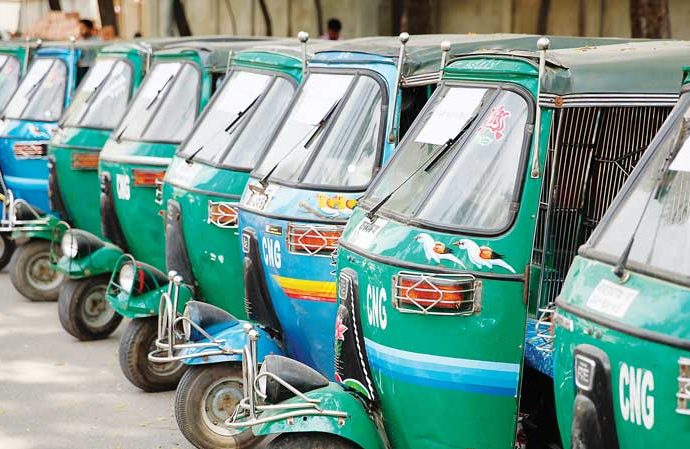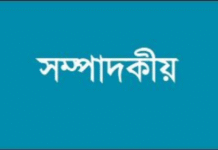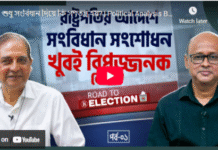We demand integrity from poor people, but stay quiet about bigger injustices
“Bhai, give me Tk20 more on the meter,” is a common line faced by many who use the CNG. I come across such a request almost regularly.
In case, the meter rate is not followed and there is an agreed fare between the passenger and the CNG, the other line often used by the CNG driver is: “If the sergeant asks, please say we are on the meter.”
Some people, as I find from vitriol-filled Facebook posts, would rather go into a prolonged fight on the street to protest or resort to absolute denunciation of these demands, calling the CNG drivers totally devoid of any moral sense.
I do agree, a lot of people have the right to be livid. The meter is there to be followed like all other rules aimed at providing proper public service.
Then, recently, I came across another Facebook post after special-coloured rickshaws with fare rates were introduced in the diplomatic area. It seems that the rickshaw-pullers have expressed dissatisfaction over the rates, calling them unreasonable.
We have a large number of staunchly principled urbanites who are willing to ensure that CNG and rickshaw-pullers are made to obey; curiously, while this zeal towards one section is so pronounced, it fades away when we are faced with far bigger vices at the upper levels of society
Some have reportedly said: With this rate, it becomes hard for them to survive. Maybe that is an exaggeration, but the personal comments following the Facebook post, many overflowing with venom, provided food for thought. I ask you to please weigh my logic a little objectively.
First of all, why is it that in a society where corruption in a variety of forms runs deep with flouting of regulations by people wielding power almost too blatant, we expect people at the lower rung of the work force to be 100% ethical with strict adherence to all rules set for them?
In one of the comments, a person called the rickshaw-pullers “extortionists” who, according to him, ask three times more the actual fare. Well, for argument’s sake, let’s see how much more can actually be asked from a possible passenger.
Around Dhaka, the maximum fare is Tk150; in such a case, the demanded fare will never be over Tk250 though such a sum may only be requested in case of a long jam or prior to a major celebration based on religious event.
During monsoon, rates go up, the Tk20 fare becomes 40, the 40 usually becomes 60, but hardly 80.
Anyway, let’s assume it becomes double but answer me this: Is paying that amount leaving us penniless or, is that extra amount making the CNG or the rickshaw-puller a rich person?
Some will rationalise by saying that for people with limited income, even small amounts paid extra can mean a lot. Well, I do not know how many who say this actually are on the road, observing the whole culture of hiring a rickshaw or a CNG, but as a regular street walker who has experience of almost all areas of the city, the CNG plus the rickshaw drivers know instinctively who will be able to pay a little more.
I have hardly seen them demanding more from garment workers returning home, or from working class people.
Of course, another argument may be that one should not pay extra since it is a matter of principle and upholding a stipulated fare is the right approach.
Agreed, we have a large number of staunchly principled urbanites who are willing to ensure that CNG and rickshaw pullers are made to obey; curiously, while this zeal towards one section is so pronounced, it fades away when we are faced with far bigger vices at the upper levels of society.
It’s easy to say: “I will give you a slap if you want more,” to a CNG driver but how many of us will get out on the street, stand in front of a flag stand car driving on the wrong side with the police making way and take an admonishing stance?
Interestingly, of late, I notice cars with diplomatic number plates also breaking the law. The point here is this: If we want people at the lower level of the social pyramid to obey laws, the examples of respect for rules need to be set at the upper echelons.
Will I be wrong to say that living here in Bangladesh all of us, including myself, have resorted one time or the other, to some form of speed money payment, favouritism, or palm greasing to facilitate our own work?
In those cases, we do what is required, isn’t that so? And then, maintain that holier-than-thou facade.
I say, in the Gulshan-Banani and Baridhara area, the rates should be high for all rickshaws because by putting pressure on these poor fellows and keeping a low fare does not make any administration a superhero, especially in an affluent area where residents meeting for a casual cup of coffee spend more than the entire day’s earning of the rickshaw driver.
No one flinches at spending Tk200 for a cup of coffee plus another 200 for a small cake but the temper rises if a CNG or a rickshaw wants a little more.
Can we show the same anger towards all those loan defaulters with high connections who move about with impunity in their luxury vehicles? No, maybe in the glint of their opulence, all of us become a little subdued, resorting to an ingratiating smile.
Or how about the so-called business magnates who make it a point to never pay employees on time? Trust me, I have seen many of those. I feel that all our rage is directed towards these fellows because we cannot get angry at the misdeeds of others. Plainly speaking, those who are way up in the power ladder.
That is exactly why the small time thief caught in a bazar is lynched whereas the big extortionist wearing the political colour gets the sycophantic salute.
Well, in a country where corruption, crony culture, and ego massaging are done at various levels in mind-boggling manifestations, we need to ask ourselves: How fair is it to demand total integrity from people at the lower rungs of the income table when all those taking the supercilious position have many hushed up sides themselves?
Source: Dhaka Tribune










